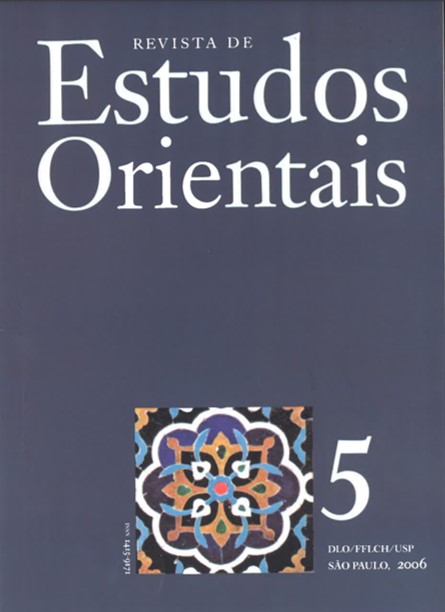walad: Feto ou Filho; A Restauração do Sentido Original de Gn 11:30
DOI:
https://doi.org/10.11606/issn.2763-650X.i5p99-117Schlagwörter:
Bíblia hebraica, Matriarcas, Promessa Divina, Esterilidade.Abstract
Esta pesquisa focaliza o termo walad na caracterização de Sara como estéril em Gn 11:30 - wa tehi śarai aqarah ein lah walad duas orações traduzidas universalmente como e Sara é estéril, não tem filho(s). A segunda oração foi considerada uma redundância e a palavra walad , um erro por parte do escriba que copiou as Escrituras. No contexto de minha interpretação da narrativa patriarcal, walad é uma escolha deliberada e engenhosa por parte do redator. De forma alguma o termo está solto ou isolado no corpo da narrativa. Ao contrário; estabelece uma correspondência entre episódios, um campo de força temático 1 que delineia um ciclo de esterilidade intra-abraâmico, específico a Sara e Abraão, iniciado em Gn11:30 e concluído em Gn21:5, com o nascimento de Isaac. walad com o sentido de feto minha proposta de tradução - funciona como fio condutor da narrativa, interligando-se fonetica e semanticamente ao verbo lehiwaled ( nascer ) em Gn 17 e 21. Dessa forma, confere contornos específicos à narrativa, que evolui da imposssibilidade reprodutiva dos protagonistas ao cumprimento da promessa divina a Abraão e Sara. Essa terminologia memorável encerra profundo valor teológico: ao assinalar a ausência de feto no útero de Sara e a impossibilidade de dois idosos gerarem, expõe a perspectiva humana em contraponto à natureza miraculosa dos desígnios divinos. A pesquisa considera, ainda, a possibilidade que ein lah walad seja uma inserção sacerdotal num trecho javista .Downloads
Download-Daten sind nocht nicht verfügbar.
Downloads
Veröffentlicht
2016-02-02
Ausgabe
Rubrik
Artigos
Zitationsvorschlag
Chwarts, S. (2016). walad: Feto ou Filho; A Restauração do Sentido Original de Gn 11:30. Revista De Estudos Orientais, 5, 99-117. https://doi.org/10.11606/issn.2763-650X.i5p99-117









